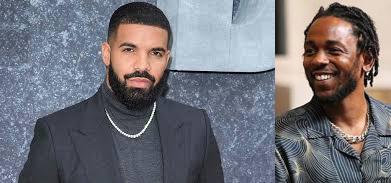
Court Throws Out Drake’s Defamation Case, Rules Lamar’s Lyrics Are Protected Art
New York – October 9, 2025
A U.S. federal judge in Manhattan has dismissed rapper Drake’s defamation lawsuit against Universal Music Group (UMG), concluding that Kendrick Lamar’s lyrics in the diss track “Not Like Us” are protected expressions rather than statements of fact.
U.S. District Judge Jeannette Vargas ruled that while the lyric accusing Drake of being a pedophile is “certainly a serious one,” when placed in the broader context of a heated rap battle, “with incendiary language and offensive accusations hurled by both participants”, the language should be understood as non-literal opinion, not verifiable defamation.
Judge Vargas reasoned that a reasonable listener would not view Lamar’s lyrics as presenting factual claims but rather as hyperbolic, artistic expression in a competitive musical feud.
Drake had filed the lawsuit in January 2025, not against Lamar directly, but against UMG, the record label that distributes Lamar’s music, asserting that the company, in promoting “Not Like Us,” was responsible for amplifying what he alleged were false and harmful statements.
Drake claimed the lyric not only damaged his reputation, but also endangered him and his family.
Industry observers have noted that targeting the record label (rather than Lamar himself) was likely a tactical decision: the First Amendment provides strong protections for artists’ expressions, making direct defamation suits against lyricists particularly challenging.
UMG said in a statement that it was “pleased by the dismissal,” adding that the lawsuit “was an affront to all artists and their creative expression and never should have seen the light of day.”
The label affirmed its ongoing commitment to promoting Drake’s work, as it handles both artists’ catalogs.
The decision underscores the legal protection afforded to artistic expression under U.S. law, especially in domains like rap and hip-hop, where provocative and contentious language is often central to competitive rivalry.
“Not Like Us” has been both commercially successful and culturally influential. The track won Grammy Awards in 2025 for Record and Song of the Year, and it has topped the Billboard Hot 100 multiple times.
That level of reach likely contributed to the high stakes of Drake’s legal push: he claimed the lyric’s broad circulation magnified its harms.
Lamar and Drake have engaged in a years-long musical rivalry, exchanging high-profile diss tracks and challenging each other’s skill and character.
The court’s ruling reaffirms a long-established principle in U.S. law: provocative, emotive, and confrontational language used in artistic or rhetorical contexts is often insulated from defamation liability.